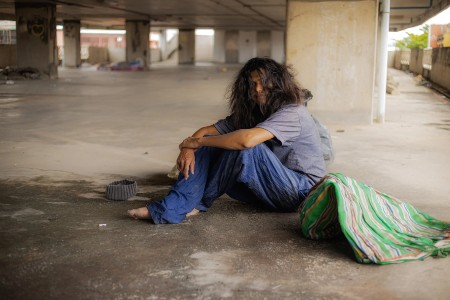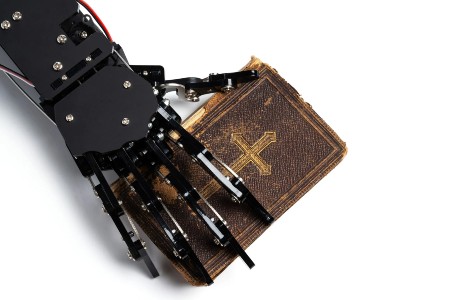 Dear readers, Catholic Online was de-platformed by Shopify for our pro-life beliefs. They shut down our Catholic Online, Catholic Online School, Prayer Candles, and Catholic Online Learning Resources—essential faith tools serving over 1.4 million students and millions of families worldwide. Our founders, now in their 70's, just gave their entire life savings to protect this mission. But fewer than 2% of readers donate. If everyone gave just $5, the cost of a coffee, we could rebuild stronger and keep Catholic education free for all. Stand with us in faith. Thank you. Help Now >
Dear readers, Catholic Online was de-platformed by Shopify for our pro-life beliefs. They shut down our Catholic Online, Catholic Online School, Prayer Candles, and Catholic Online Learning Resources—essential faith tools serving over 1.4 million students and millions of families worldwide. Our founders, now in their 70's, just gave their entire life savings to protect this mission. But fewer than 2% of readers donate. If everyone gave just $5, the cost of a coffee, we could rebuild stronger and keep Catholic education free for all. Stand with us in faith. Thank you. Help Now >
Kenyan court considers guidelines for 'safe abortion'
FREE Catholic Classes
Kenya's high court is considering the state of health care in the country, as it hears a case brought on behalf of a young woman who died last month from complications which were related to a back-alley abortion she procured in 2014.

Highlights
Catholic Online (https://www.catholic.org)
7/16/2018 (6 years ago)
Published in Living Faith
Keywords: Kenyan court, considers guidelines, safe abortion,
Nairobi, Kenya, (CNA/EWTN News) - The girl, known by her initials JMM, was raped in 2014 at the age of 15. In December of that year, her guardian "received a call from a relative informing her that the former was vomiting and bleeding heavily at a local clinic where she had gone to seek treatment," Akello Odenyo reported in The Standard, a Nairobi daily, May 28.
JMM had told clinic staff she had procured an unsafe abortion and that was sent to a variety of hospitals for post-abortive care.
In 2015, JMM's mother, along with the Federation of Women Lawyers and the Centre for Reproductive Rights, filed a suit against the Ministry of Health claiming JMM was not provided with proper post-abortion care and calling on the government to provide access to safe abortions.
JMM developed kidney failure, and died June 10, 2018.
The 2010 Kenyan constitution made abortion legal in certain circumstances -" in the cases of emergencies and when the woman's health is in jeopardy.
Since then, Kenya's health ministry "has withdrawn essential guidelines on conducting safe abortions and banned health workers from training on abortion," according to Reuters.
The guidelines were removed in 2013 "after it emerged they were being used for unintended purposes," according to the testimony of Dr. Joel Gondi, head of the Reproductive and Maternal Health Service Unit, The Star reported.
"The guidelines, amongst other things, provided clarity on who could perform abortions, safe-guarding against illegal practitioners," reported Reuters. "The ban on training has meant fewer health professionals available to perform the procedure or after care."
The suit filed on JMM's behalf maintains that the poor care she received following her abortion was a result of the lack of safe abortion services. Petitioners seek the reinstatement of the abortion guidelines, and an end to the ban on training health workers on performing abortion.
The Ministry of Health reported in May that the country had spent 533 million Kenyan shillings ($5.29 million) treating complications from back-alley abortions.
Evelyne Opondo of the Centre for Reproductive Rights said that "While JMM was entitled to quality post abortion care irrespective of whether it was within the law or otherwise, she did not receive it from the point of first contact with the health system. Instead there were several delays and missed opportunities to mitigate the adverse effect of the unsafe abortion on her health and life."
JMM's mother said that her daughter's death "was entirely preventable," and maintained that "Kenya has to make abortion safe and accessible."
The Kenyan high court heard three-day of testimony this week in the case. It has been adjourned until Sept. 18, and a verdict is expected before the end of the year.
Among the testimonies heard by the court was that of Dr. Wahome Ngari, who said that figures on the number of back-alley abortions procured, which are used to argue for the expansion of abortion rights, are wildly inflated.
Ngari said that a report by a reproductive health firm which had been cited in the court and which estimated 400,000 unsafe abortions in 2002 was inaccurage.
The physician said the correct figure was 140,000, The Standard reported.
Such inflation "was used in Malawi to push the Government to repeal their abortion law," he told the court.
Ngari said the focus on health care for pregnant women in Kenya should begin with blood loss.
"The reason pregnant mothers die in the country is haemorrhage, followed by infections, hyperactive disorders, prolonged or obstructed labour and lastly abortion. Anyone who wants to offer a solution should follow that order."
Support FREE Catholic Education
---
'Help Give every Student and Teacher FREE resources for a world-class Moral Catholic Education'
Copyright 2021 - Distributed by Catholic Online
Join the Movement
When you sign up below, you don't just join an email list - you're joining an entire movement for Free world class Catholic education.
-

-
Mysteries of the Rosary
-
St. Faustina Kowalska
-
Litany of the Blessed Virgin Mary
-
Saint of the Day for Wednesday, Oct 4th, 2023
-
Popular Saints
-
St. Francis of Assisi
-
Bible
-
Female / Women Saints
-
7 Morning Prayers you need to get your day started with God
-
Litany of the Blessed Virgin Mary
Bound by Betrayal: Katie's Struggle with Lust, Lies, and Redemption
-

John: A Story of Addiction, Hopelessness, and the Search for Redemption
-

Science vs. Faith: The Battle for Truth and Hope
-
Regenerative Agriculture: The Answer to America's Chemical-Laden Food Crisis
-
Prestige vs. Purpose: Where Should Your Donations Really Go?
Daily Catholic
 Daily Readings for Tuesday, January 07, 2025
Daily Readings for Tuesday, January 07, 2025 St. Raymond of Pennafort: Saint of the Day for Tuesday, January 07, 2025
St. Raymond of Pennafort: Saint of the Day for Tuesday, January 07, 2025 Prayer for a Blessing on the New Year: Prayer of the Day for Tuesday, December 31, 2024
Prayer for a Blessing on the New Year: Prayer of the Day for Tuesday, December 31, 2024- Daily Readings for Monday, January 06, 2025
- St. Andre Bessette: Saint of the Day for Monday, January 06, 2025
- St. Theresa of the Child Jesus: Prayer of the Day for Monday, December 30, 2024
![]()
Copyright 2024 Catholic Online. All materials contained on this site, whether written, audible or visual are the exclusive property of Catholic Online and are protected under U.S. and International copyright laws, © Copyright 2024 Catholic Online. Any unauthorized use, without prior written consent of Catholic Online is strictly forbidden and prohibited.
Catholic Online is a Project of Your Catholic Voice Foundation, a Not-for-Profit Corporation. Your Catholic Voice Foundation has been granted a recognition of tax exemption under Section 501(c)(3) of the Internal Revenue Code. Federal Tax Identification Number: 81-0596847. Your gift is tax-deductible as allowed by law.







 Daily Readings for Tuesday, January 07, 2025
Daily Readings for Tuesday, January 07, 2025 St. Raymond of Pennafort: Saint of the Day for Tuesday, January 07, 2025
St. Raymond of Pennafort: Saint of the Day for Tuesday, January 07, 2025 Prayer for a Blessing on the New Year: Prayer of the Day for Tuesday, December 31, 2024
Prayer for a Blessing on the New Year: Prayer of the Day for Tuesday, December 31, 2024

